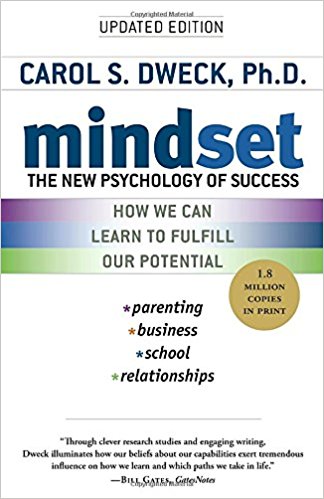Mindset: The New Psychology of Success by Carol Dweck, PhD. Ballantine Press: New York (2016). 301 + xi pages. US$17.00 (paperback).
Engineering managers are called to lead and to inspire. Yet, many of us struggle to understand what motivates our staff and how to improve engagement and creativity. What can we do – as leaders – to build success in ourselves, our teams, and our employees?
Carol Dweck’s book, “Mindset,” provides great insight to the perspectives that each of us brings to work, school, and relationships. A Stanford psychologist, Dr. Dweck’s decades of research on learning and talent help us to encourage those we influence to achieve their utmost. At the heart of her research is how we think about abilities.
People with a fixed mindset assume that intelligence is limited and ta lent reigns over effort. These people will find blame with others when they experience failure because they view failure as a reflection of their own self. For example, the great tennis player, John McEnroe believed only in natural talent and could not stand the thought of losing (pg. 100). When he lost a match, McEnroe blamed the weather or any other “little thing” (pg. 102). He didn’t pursue self-reflection or analysis to seek improvement. People with a fixed mindset rely upon a pre-determined pool of “unique” talents to “win”.
lent reigns over effort. These people will find blame with others when they experience failure because they view failure as a reflection of their own self. For example, the great tennis player, John McEnroe believed only in natural talent and could not stand the thought of losing (pg. 100). When he lost a match, McEnroe blamed the weather or any other “little thing” (pg. 102). He didn’t pursue self-reflection or analysis to seek improvement. People with a fixed mindset rely upon a pre-determined pool of “unique” talents to “win”.
Alternatively, people with a growth mindset seek interesting challenges and view failures as learning opportunities. They believe that qualities and capabilities can be cultivated through greater effort, improved strategies, and help from others (pg. 7). In one of Dweck’s studies with young children, those with the fixed mindset attempted new puzzles only when they did well the first time. Meanwhile, kids with a growth mindset sought more challenging puzzles even if they could not solve the original one. They were motivated by the challenge itself and sought novel strategies to identify potential solutions.
So, what does mindset have to do with engineering managers? As leaders, we encounter both personality types. Some of our colleagues believe they are skilled and talented engineers just because they are inherently special and unique. Others (like Edison) recognize that each failure represents a chance to grow our knowledge base and to continuously improve. It is the responsibility of a good leader to build and reward project team members while simultaneously growing a learning culture that drives toward project success.
Dweck relays tips to help us establish a growth mindset. Rewarding effort over talent encourages people to try new theories and to investigate new possibilities. Punishing failure is, of course, adamantly discouraged. Dr. Dweck freely admits that she tends toward a fixed mindset in many situations, but by focusing on goals and learning, she can change her perspective to a growth mindset. So can we and with a focus on project objectives, we can encourage team members to also learn and grow.
For instance, she tells of a colleague who wanted to lose weight for a class reunion. He tried the same things as he had in the past, but to no avail. Implementing the same tools and techniques is an indication of a fixed mindset personality. A person with a growth mindset instead would try new strategies to tackle the old problem – change meal portions, exercise with a buddy, etc.
Mindset is packed with data and research from Dweck and her colleagues, much of it from the field of education. Chapter 5 focuses on examples and application of mindsets in business. Mindset is a fascinating look at how our internal perspectives can lead us to decisions in how we learn and how we achieve success. I recommend Mindset to any engineering manager or leader as well as to all practicing engineers. All of us can benefit from a positive growth mindset!
What learning and success perspectives influence your engineering teams?
Teresa Jurgens-Kowal, PhD, PE, PMP, CPEM, NPDP
Global NP Solutions, LLC
